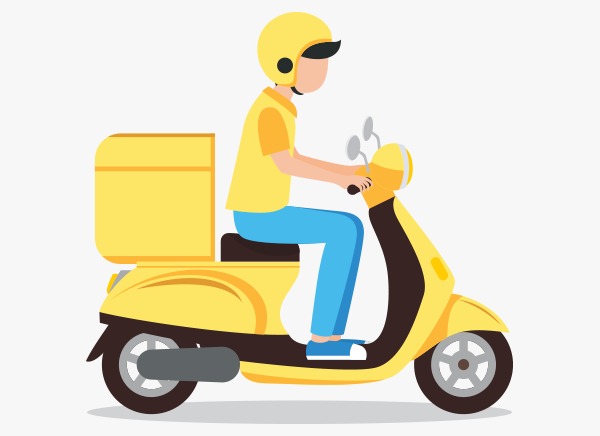01 May


Optimise your last-mile delivery :
For as far back as a couple of years, there has been a huge development in the web-based business industry. In any case, the COVID-19 pandemic has caused critical changes in client purchasing practices and making web-based shopping the new typical for everybody.
The earlier year has additionally made an enormous flood sought after for same-day and two-day conveyances, hyperlocal shopping, and dynamic on-request benefits.
There is no rejecting that comfort is an impetus for consumer loyalty, like never before previously. With accommodation turning into the focal point of fascination, the interest for effectiveness, quick, and steady last-mile conveyances has expanded.
In any case, there has been a sharp ascent in the quantity of keep going mile conveyance vehicles out and about. It has expanded fossil fuel byproducts and expanded fuel utilization.
With the rising interest for last-mile conveyance activities, there would be 36% more conveyance vehicles in the main 100 worldwide zones by 2030. In the event that we don’t take any compelling means, it might build fossil fuel byproducts up.
For organizations engaged with this race, regardless of whether it’s online business, retails, outsider coordinations, staple, and food conveyances, great coordinations is imperative for achievement in the commercial center.
All the while, a few organizations are focused on the climate for controlling the destructive effects of calculated exercises in the world and structure economical stock chains.
Consequently, a few endeavors are taking up greener coordinations practices to lessen carbon impression and limit the ecological impacts.
By 2030, Amazon intends to accomplish 100% sustainable power, which will be the biggest task to date. Alongside Rivian Automotive Inc., it means to incorporate 100000 battery-electric conveyance vans for its central conveyances.
By 2040, Walmart plans to run a whole scope of electric vehicles utilizing 100% sustainable power to deal with zero outflows.
Across the European mainland, as well, electric conveyance vehicles are regularly located on downtown streets. For instance, by the following five years, IKEA expects to have 25% of its last-mile conveyances made by electric vehicles.
Electric Vehicles in the Last-mile: A help to the climate
The selection of electric vehicles for last-mile conveyances is perhaps one of the pursued patterns to carry out eco-accommodating coordinations. These EVs run on electric engines in ignition motors that utilization fuel and gases to produce power.
Typically, there are two kinds of EVs utilized: All-Electric Vehicles (AEVs) and Plug-in Hybrid Electric Vehicles (PHEVs)
Electric vehicles have become a fruitful swap for fuel-devouring cars to lessen the hurtful impacts of an unnatural weather change, rising contamination, and reducing regular assets. Other than being an eco-accommodating choice, these vehicles offer different other business benefits.
Business Benefits of Using Electric Vehicles (EVs)
1.Minimum fuel consumption
The coordination business relies exceptionally upon transportation. That outcomes in outrageous amounts of fuel wastage directly through the store network venture. In 2018, the United States utilized around nine billion barrels of oil, ⅔ of which went towards transportation.
No CNG, diesel, or petroleum is required in a completely electric vehicle, and lesser fuel is vital in any event, for a crossover electric vehicle. By utilizing EVs for executing last-mile conveyances, organizations can limit fuel utilization strikingly.
2.Cost-successful coordinations
Coordinations and fuel utilization are firmly identified with one another, so by utilizing electric vehicles for last-mile conveyance, you can diminish working expenses alongside lower fuel utilization.
Plus, electric vehicles amount to massive expense reserve funds. Additionally, with innovative advancement, changing to an electric conveyance vehicle is not, at this point an enormous monetary venture, as it was a couple of years prior.
3.Easy upkeep
EVs are quite simple to keep up. Very much like a cell phone, you can re-energize these vehicles by associating them to an outer stockpile. When you re-energize them, EVs can offer a mileage of 80 to 100 miles and approach 12 hours.
When contrasted with customary vehicles, EVs have lesser automobile parts, like a radiator, the motor, sparkle plugs, cylinders, fuel siphons, fumes frameworks, and cooling frameworks. It makes vehicle support significantly more helpful.
Electric vehicles just need battery support or substitution once at regular intervals.
Copyright © 2025 Onetracker Technologies Pvt. Ltd.



